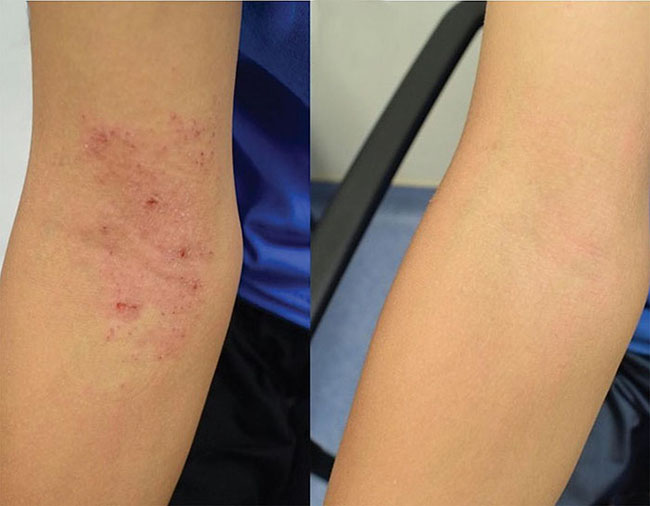Probiotic skin therapy improves eczema in children, IRP study suggests
An experimental treatment for eczema that aims to modify the skin microbiome safely reduced disease severity and increased quality of life for children as young as 3 years of age, a National Institutes of Health study has found. These improvements persisted for up to eight months after treatment stopped, researchers report Sept. 9 in Science Translational Medicine.
Atopic dermatitis, commonly called eczema, is a chronic inflammatory skin disease characterized by dry, itchy skin and rashes. The disease is most common in children and is linked to an increased risk of developing asthma, hay fever and food allergy. While available treatments can help manage eczema symptoms, current options can be costly, and many require multiple daily applications.
The experimental therapy contains strains of live Roseomonas mucosa — a bacterium naturally present on the skin — originally isolated from healthy volunteers and grown under carefully controlled laboratory conditions. For four months, clinical trial participants or their caregivers periodically applied this probiotic therapy to areas of skin affected by eczema.

Inner elbow of a child with eczema before Roseomonas mucosa therapy (left) and after four months of treatment (right).
This page was last updated on Friday, January 21, 2022